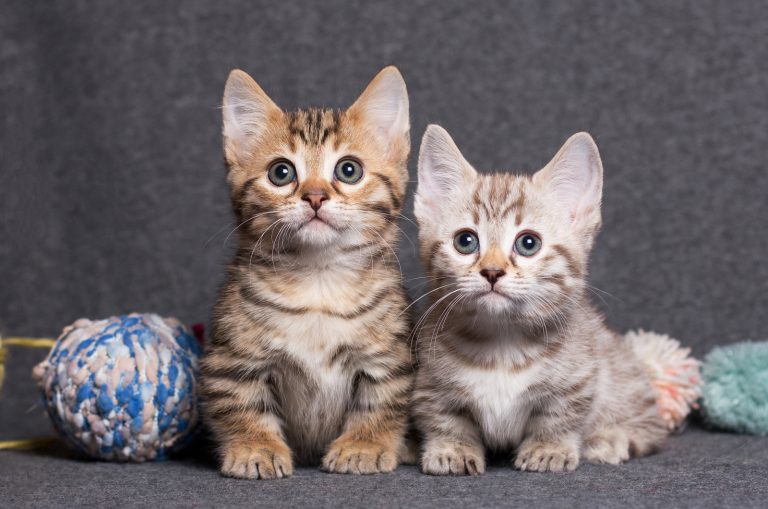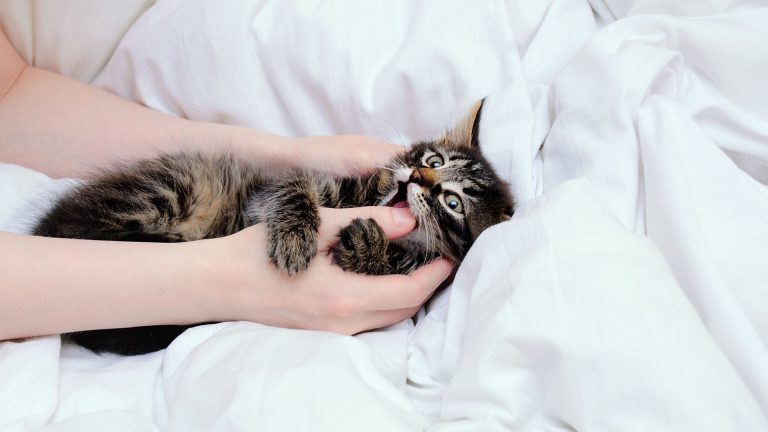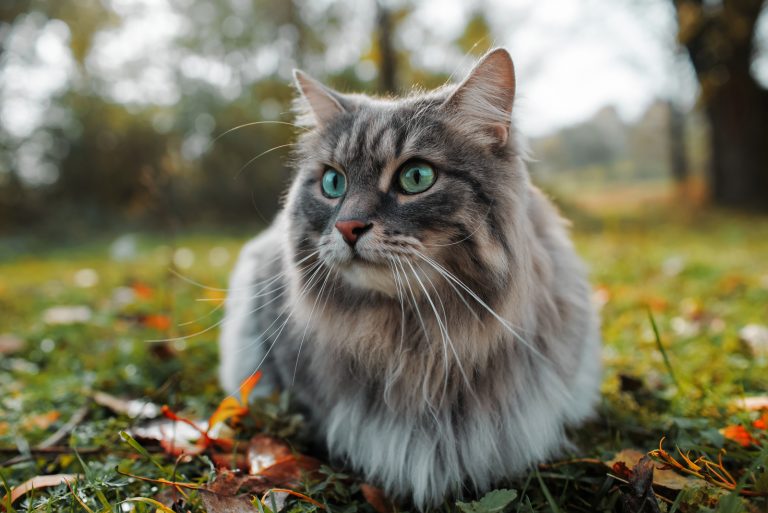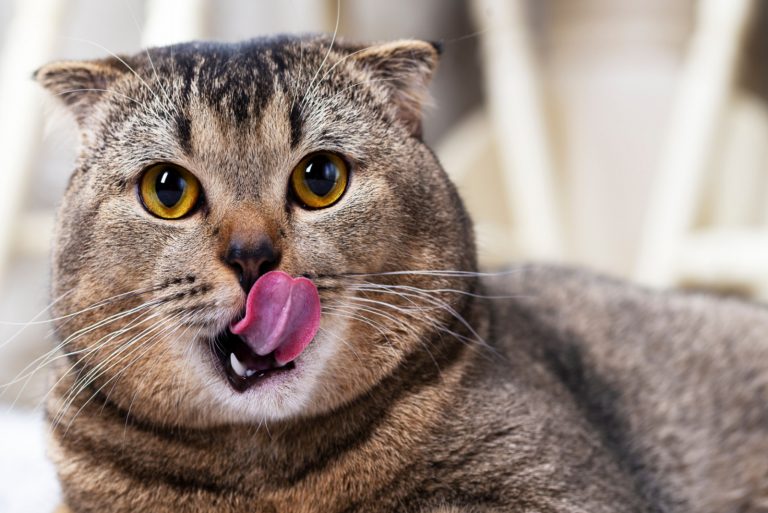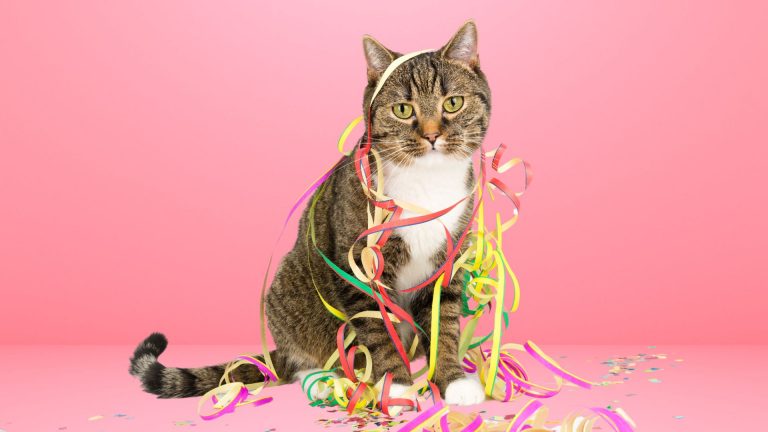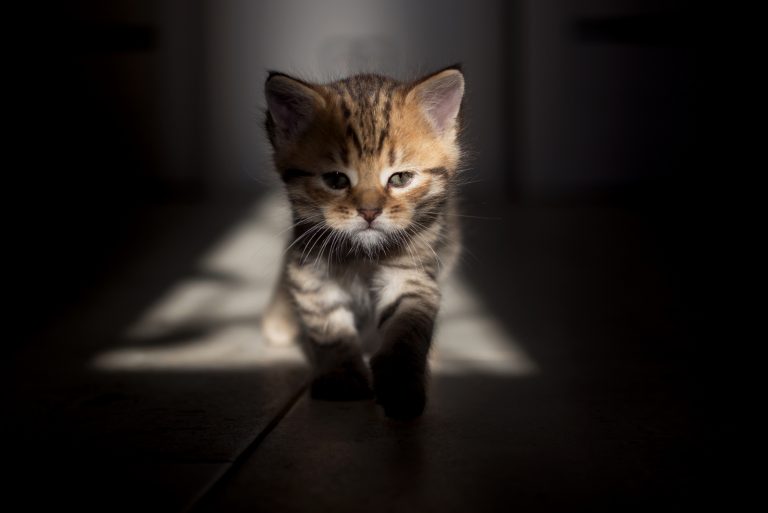Do Raccoons Eat Cats? Are The Rumors True Or Not?
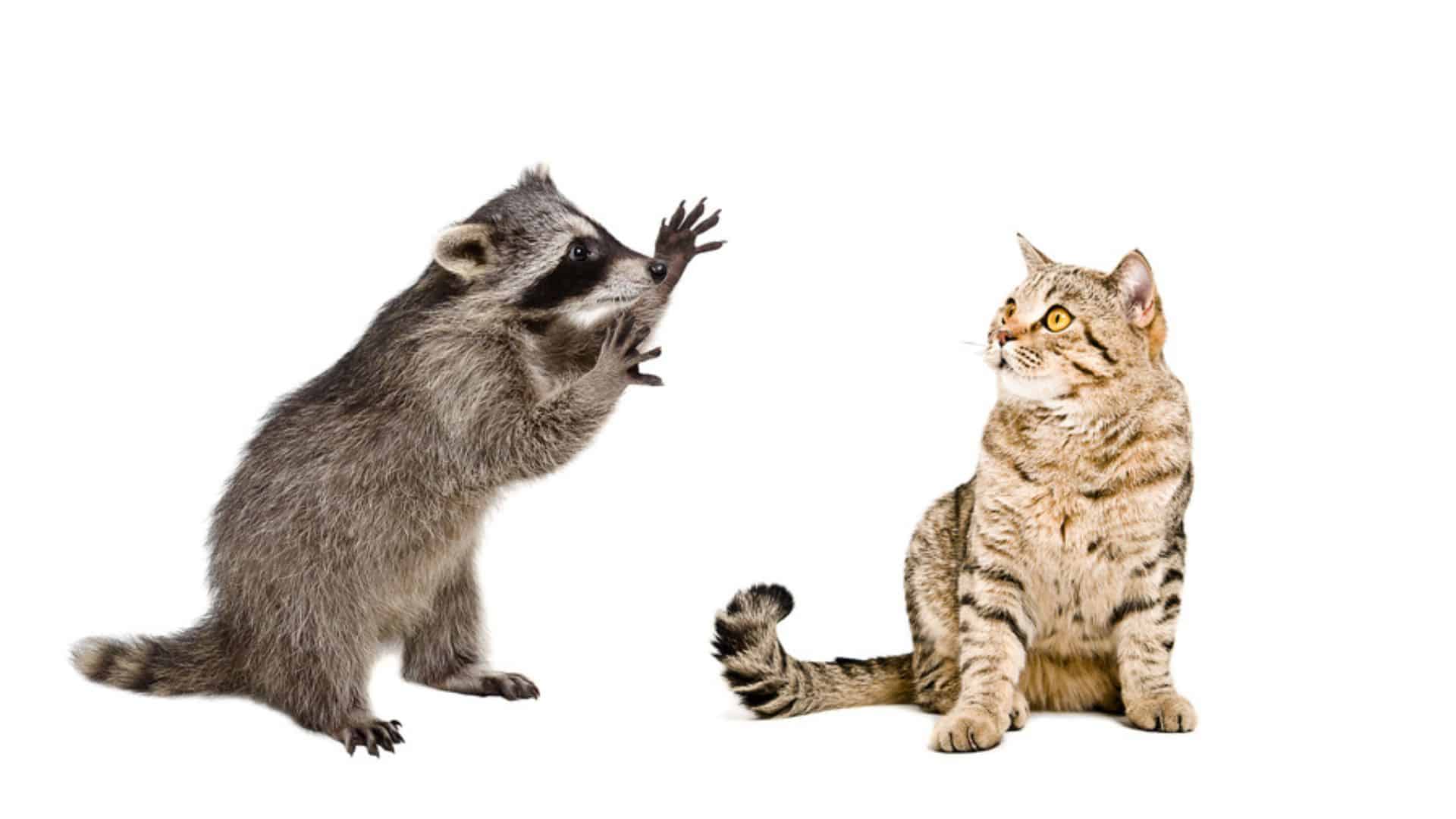
If you’ve heard something scavenging in your trash can late at night, it’s likely a raccoon. Cleaning up after a raccoon’s little expedition is not a big issue; the bigger problem is your pet’s safety around these animals.
You must be wondering Do raccoons eat cats?
Raccoons do pose a threat to cats; however, it’s not very likely that a raccoon will attack and eat a cat. Felines are feisty fighters and they might be pretty challenging for a raccoon to take on.
In this article, I will go into more depth about the relationship between raccoons and cats, whether you should be worried about raccoons in your yard, and how to prevent an encounter between your cat and a raccoon!
Do Raccoons Eat Cats?
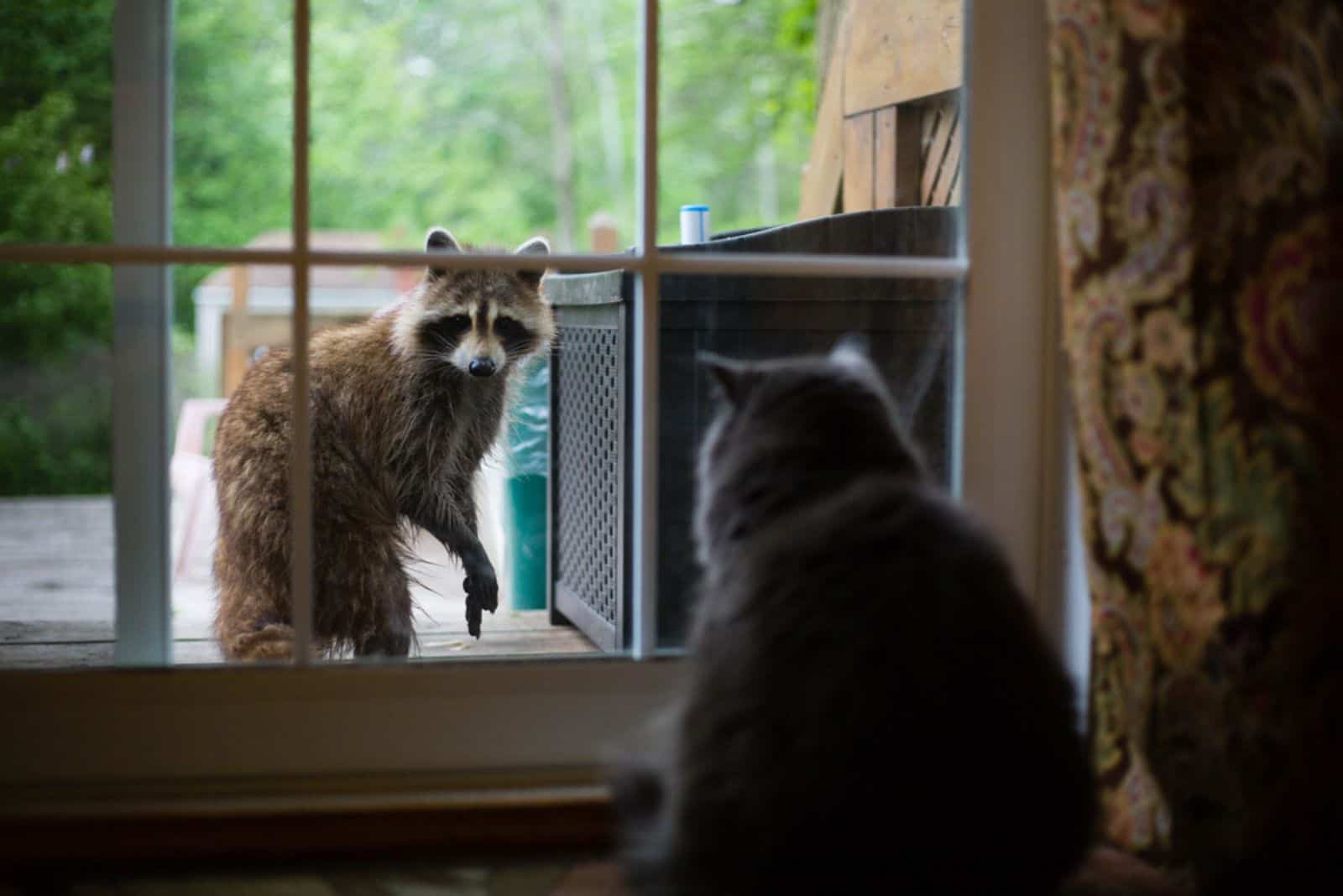
It is not common for raccoons to prey on small animals, including cats and small dogs, but it can happen in some situations.
Raccoons are omnivorous and opportunistic feeders, which means they will eat a wide variety of foods.
Cats may risk becoming prey for raccoons, especially if they are allowed to roam outside without supervision.
However, raccoons are also known to coexist with cats and other domestic pets when they are raised together from a young age.
What Does A Raccoon Eat?
Raccoons are omnivores, meaning they may eat various foods, including fruits, vegetables, nuts, insects, fish, and birds. They are also known to eat a wide variety of small mammals, including mice, voles, and squirrels.
While raccoons are not typically known to prey on domestic cats, they may do so if the opportunity presents itself, especially if a hungry raccoon has no other food sources.
They are also scavengers, meaning they’re known to scavenge for food and eat garbage or other human foods if they can access them.
Are Raccoons A Danger To Cats?
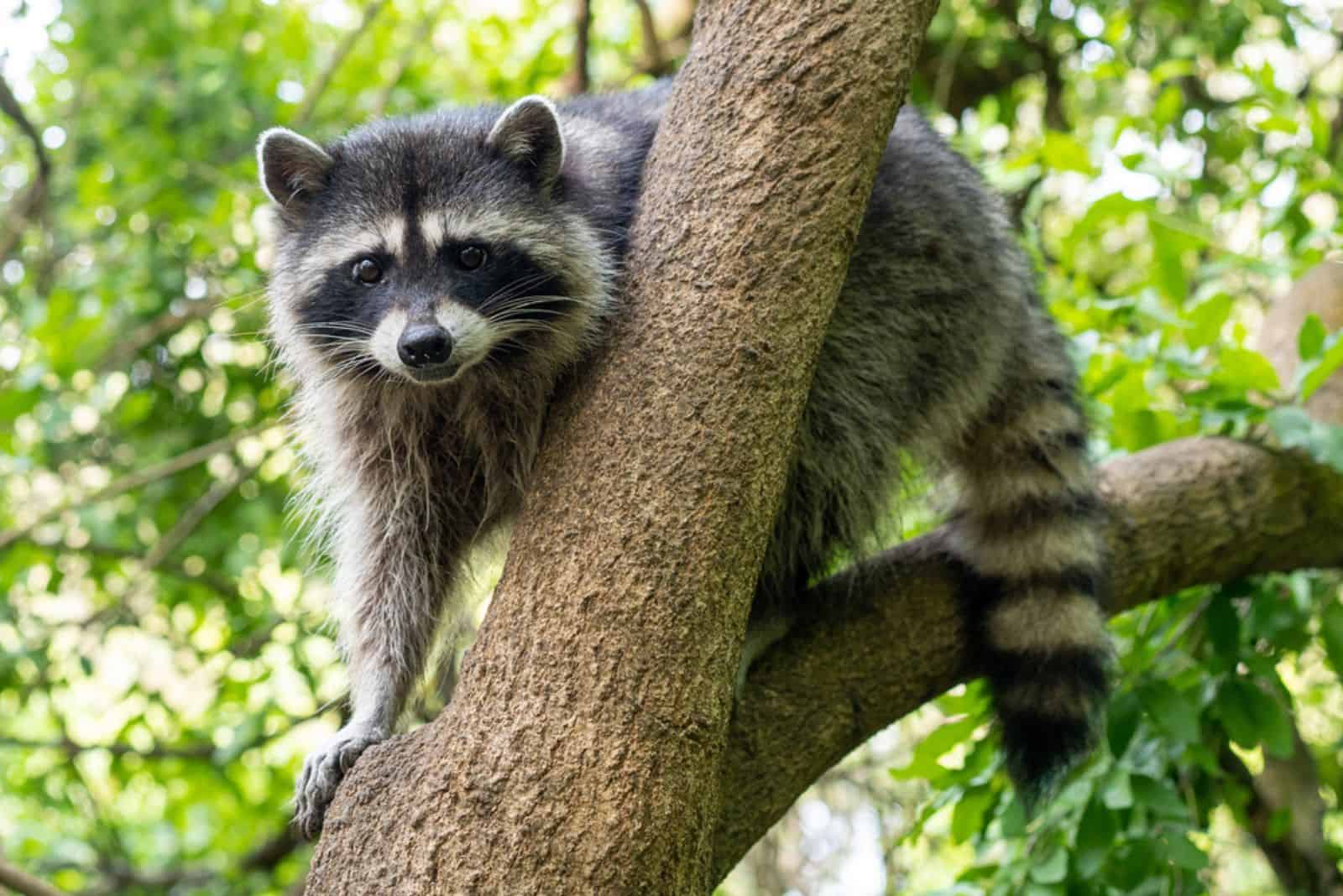
While raccoons and cats can coexist peacefully in some cases, racoons may pose a danger to cats, particularly if they feel threatened or are infected with rabies.
Raccoons are known to be carriers of rabies, a viral disease that can be transmitted to other animals and humans through bites or scratches.
If a raccoon were to scratch or bite a cat, the cat could potentially contract rabies. Vaccination against rabies is the best way to protect your cat from this disease.
In addition, raccoons can be aggressive if they feel threatened, so it is essential to keep cats and raccoons separate to avoid any potential confrontations.
How Would Your Cat And A Raccoon Come Into Contact In The First Place?
If you have an indoor cat, it is unlikely that it will come into contact with a raccoon.
However, your outdoor cat has several ways that it could encounter a raccoon, such as:
• In your yard: If you have a raccoon living near your home, your cat may come into contact with them if they venture into your yard. Raccoons are attracted to food, so if you have a bird feeder full of birdseed or full trashcans, your cat may encounter a raccoon while it is investigating these food sources.
• In the wild: If your cat roams freely outdoors, it may come across a raccoon while exploring its surroundings. Raccoons are commonly found in wooded areas, near streams or rivers, and in urban environments, so your cat may encounter one while exploring these areas.
Overall, it is important to keep a close eye on your cat if they are allowed to roam outdoors and take steps to prevent them from coming into contact with raccoons.
Why Would A Raccoon Attack A Cat?
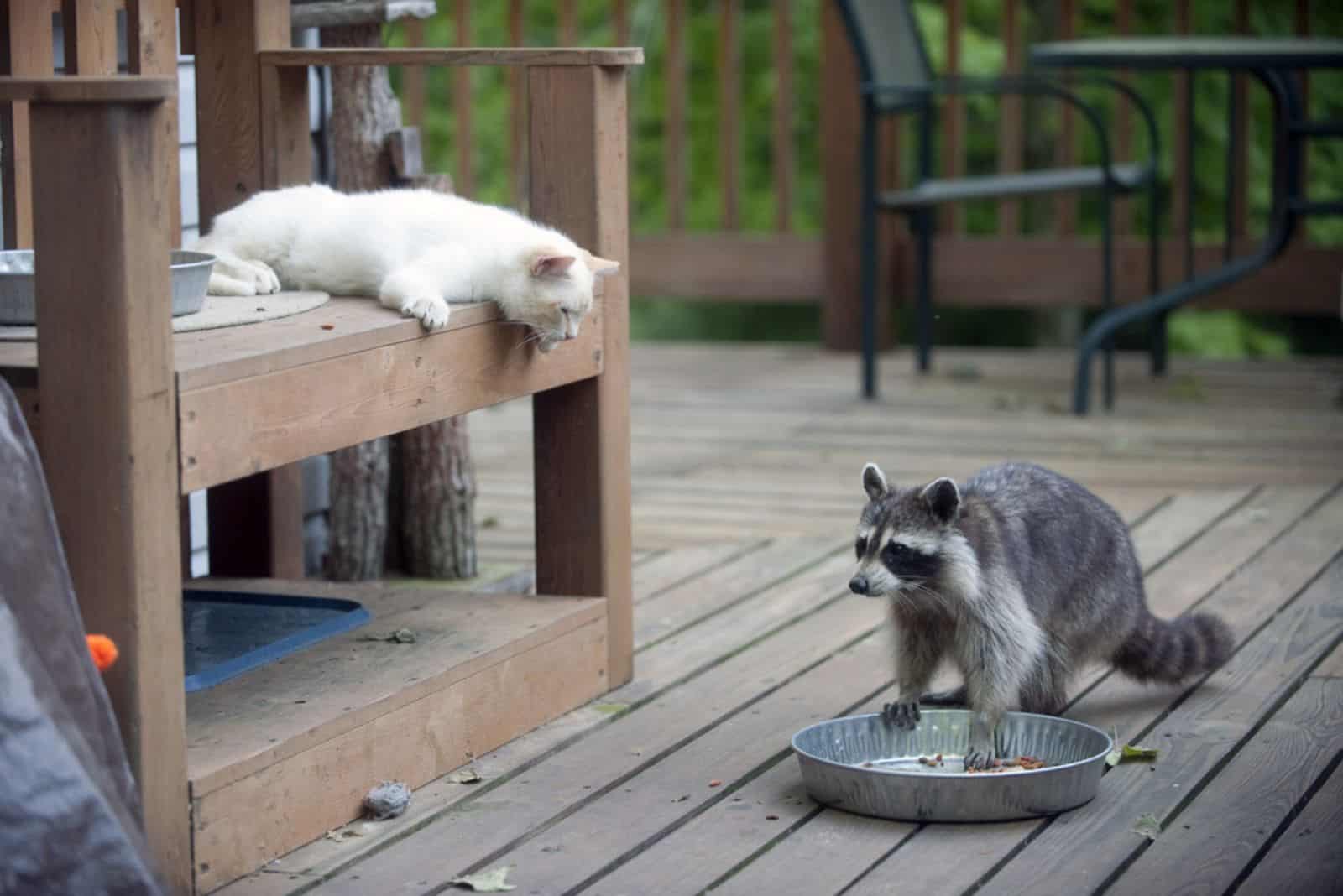
Raccoons are wild animals, and they may attack a cat if they feel threatened or are trying to defend themselves or their young.
Mother raccoons have no problem attacking a cat to protect its baby raccoon.
Raccoons are also known to be territorial, so if a raccoon perceives a cat as a threat to its territory, it may attack the cat.
Additionally, raccoons are opportunistic predators, so if they can obtain food or other resources from a cat, they may attack the cat to do so.
Therefore, keeping raccoons and cats separate is important to avoid any potential conflicts or injuries.
Who Would Win In A Fight, A Raccoon Or A Cat?
It is impossible to say who would win in a fight between a wild raccoon and a cat, as it would depend on various factors such as the size and age of the animals, their level of aggression, and the circumstances of the fight.
In general, raccoons are larger and stronger than cats, but cats are agile and can be ferocious when provoked.
If a raccoon and a cat were to fight, both animals would likely sustain injuries.
Would A Raccoon Kill A Kitten?
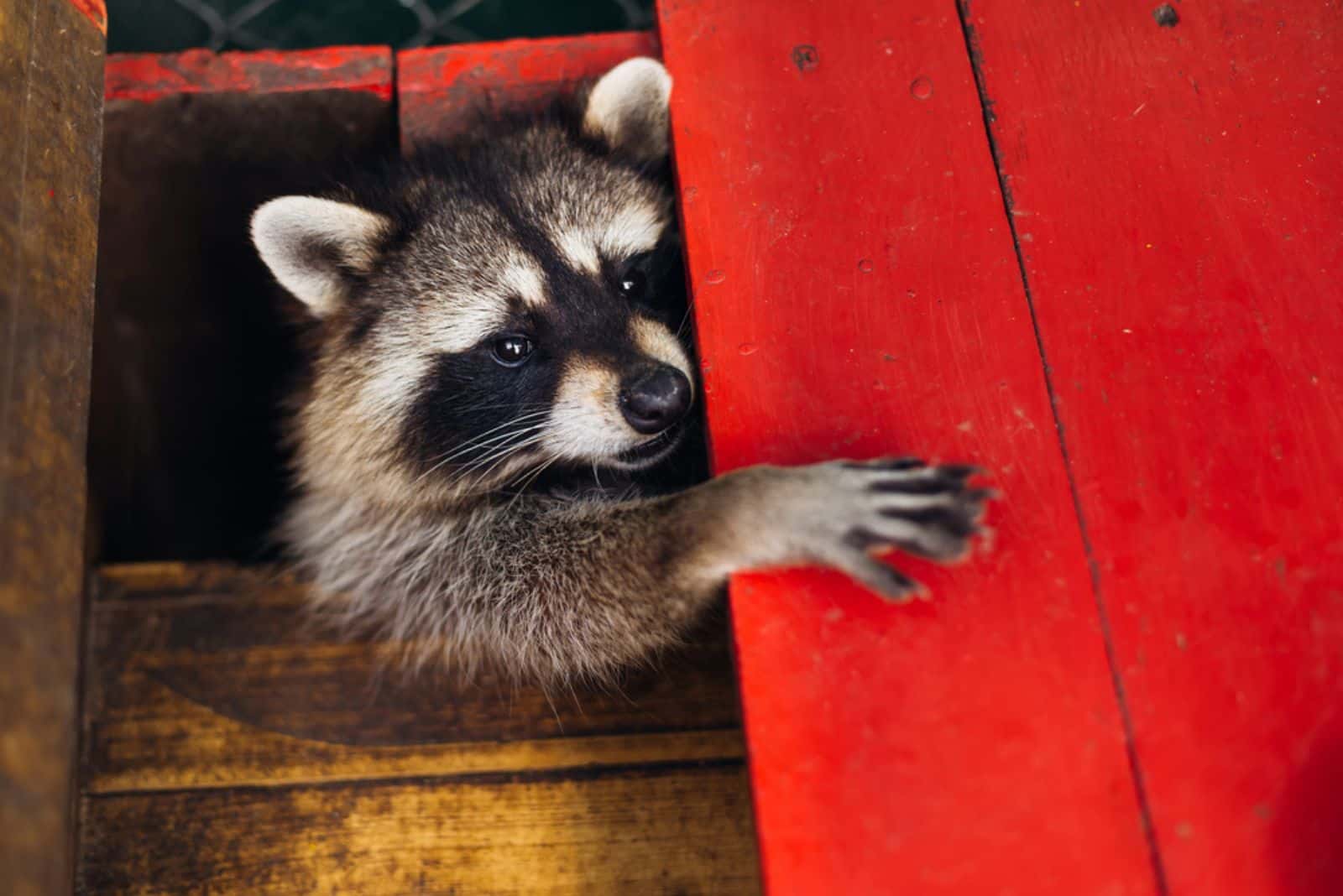
It is unlikely that a raccoon would kill a kitten, as raccoons tend to avoid confrontations with other animals.
However, if a raccoon were to feel threatened or cornered, it might defend itself by attacking the kitten.
However, there are bigger threats to small kittens. In rural areas, kittens may be at risk of being killed by larger predators, such as coyotes, foxes, and birds of prey.
How Do I Prevent My Cat From Encountering A Raccoon?
Raccoons are found throughout much of North America. They are native to the continent and can be found in various habitats, including forests, grasslands, and urban areas.
Therefore, if you’re a homeowner in North America, keep an eye out for your cat’s safety regarding raccoons.
You can take several steps to prevent your cat from encountering a raccoon. Here are a few suggestions:
1. Keep Your Cat Indoors
The safest way to prevent your cat from encountering a raccoon is to keep them indoors at all times. This will also protect them from other hazards, such as cars, animals, and diseases.
2. Lock The Cat Door At Night
It may be necessary to lock the cat door to prevent raccoons and other animals from entering your home.
Make sure there is no way for a raccoon to enter your home. Raccoons may also quickly enter basements and attics via unlocked windows and unprotected crevices.
3. Secure Your Trash Cans
Raccoons are attracted to food, so keep your trash cans securely covered to prevent raccoons from rummaging through them.
4. Keep Your Cat’s Food Inside
If you feed your cat outdoors, consider bringing their food dishes inside to prevent raccoons from finding them and eating the food.
5. Install Motion-Activated Lights
Raccoons are nocturnal animals, so installing motion-activated lights near your home can help to deter them from coming onto your property.
6. Use A Raccoon Repellent
Several commercially available repellents are marketed for use against raccoons.
These repellents typically contain strong-smelling ingredients, such as peppermint oil or ammonia, that deter raccoons from entering a particular area.
However, the effectiveness of these repellents can vary, and they may not deter some raccoons.
Sprinklers that are activated by movement are effective raccoon deterrents.
7. Consult With A Professional
If you have a raccoon problem, consider consulting with a professional pest control company, they can help to safely and humanely remove raccoons from your property.
Humane trapping is the right way to get rid of a raccoon. Wildlife animal control professionals are trained to safely and humanely remove raccoons from residential areas and relocate them to a more suitable habitat.
Can Raccoons And Cats Get Along?
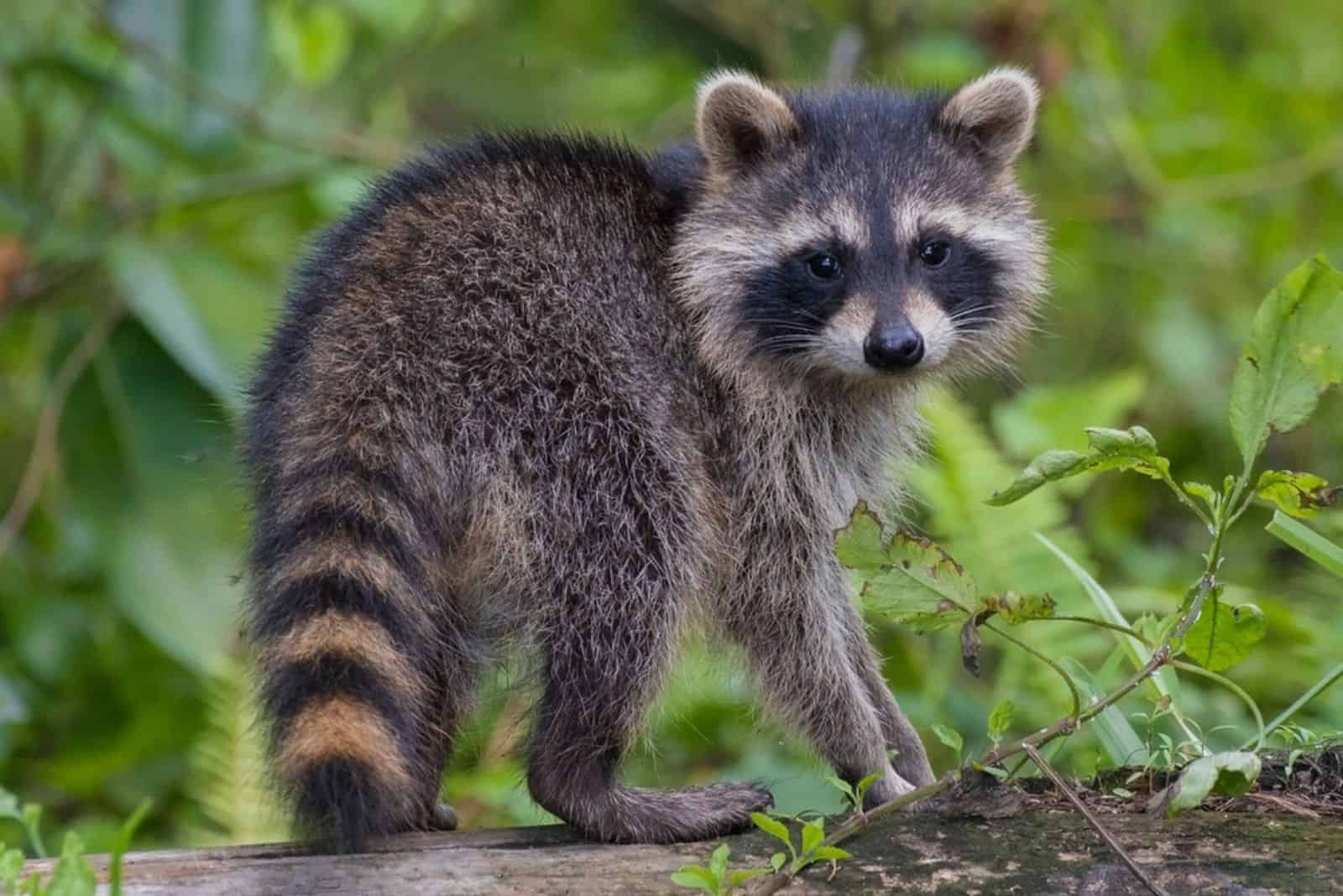
Raccoons and cats can coexist peacefully, but it is not always the case. Raccoons are wild animals, and they may view cats as prey or competition for resources.
However, if a raccoon and a cat are raised together from a young age, they may be more likely to get along.
For the safety of both animals, the owner needs to supervise their interactions and provide separate living spaces for them.
Can I Keep A Cat And A Racoon Together As Pets?
It is not a good idea to keep a raccoon as a pet. Raccoons are wild animals and are not suited to living in captivity.
They can be unpredictable and may be dangerous to keep in your home.
Additionally, raccoons can carry diseases that can be transmitted to humans and other animals, so it is not safe to have them near your cat or other pets.
If you have a raccoon already living in your home, it is important to contact a wildlife rehabilitator who can provide the raccoon with the proper care it needs and release it back into the wild.
Wrapping Up
Do raccoons eat cats? Raccoons are not known for preying on or attacking cats, but there are rare instances where that happens.
If you live in an area populated by raccoons, ensure your cat does not leave the house and hang around the garbage bin, as that’s where the two are most likely to meet.
Ensuring your cat’s safety is the number one priority, so take your trash out regularly, as that’s the best way to prevent a raccoon from wandering into your yard!
Related Articles:
Do Owls Eat Cats? 6 Ways To Keep Your Kitty Safe

